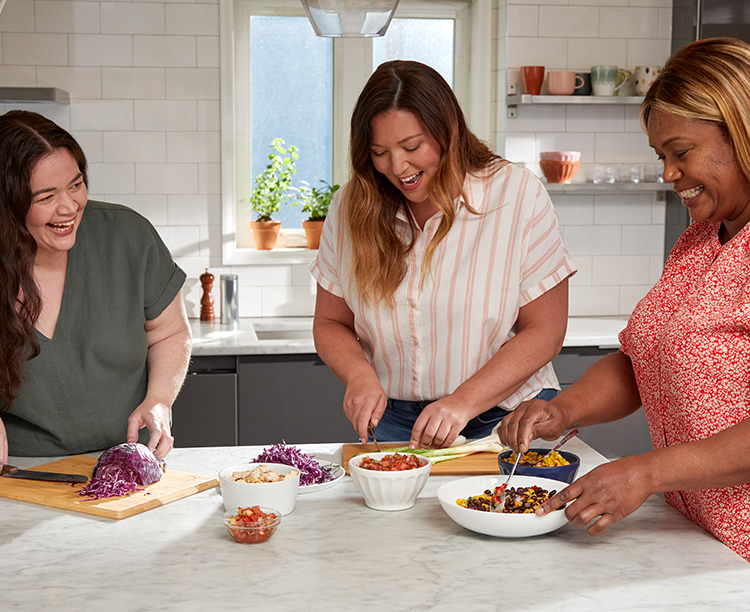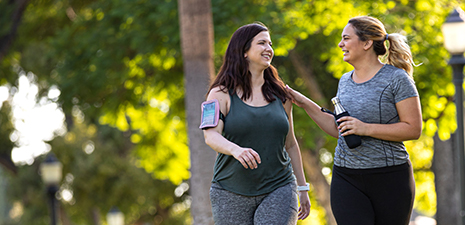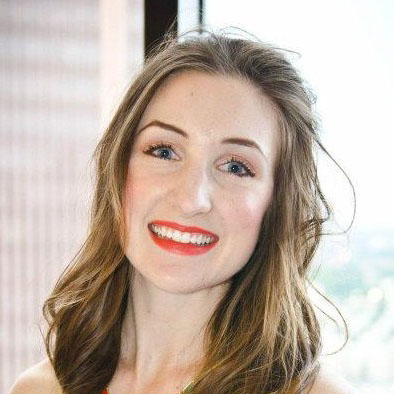Cultivating self-compassion on your weight loss journey is clinically proven to aid you in your weight loss efforts! Dr. Ellen Albertson shares some of the new evidence supporting a self-compassion practice.

Structuring Your Buddy Support System to Lose Weight
A support system is helpful for reaching goals. Whether working through a to-do list, crushing a work milestone, or adopting a healthy new lifestyle, surrounding yourself with supporters feels good but that’s not all. Scientific evidence shows that being able to talk about weight loss goals and work with professional healthcare providers may be connected with losing weight.1
There are many ways to broaden your support network and here we’ll look at three of them.
One-on-One Support
A registered dietitian or personal trainer can offer customized information and set up a successful program for you to follow.2 Their professional experience may be especially helpful if you run into hurdles throughout the weight loss process.
No time or budget for a pro? A trusted friend with experience in weight loss might be able to step in. While he or she may not be able to provide the same level of customized guidance, the benefit of their support may be very valuable. Simply having someone to bounce ideas and goals off of or vent frustrations is encouraging.
Small Group Support
This type of support network can take many different forms such as exercise classes, a group of friends who set up regular check-ins, or small groups organized by a local facility, like a reputable and qualified registered dietitian or other weight loss organization that have structured forms of accountability.
Similar to one-on-one support, one of the main differentiators may be comfort level with friends versus strangers in a class or group setting. A small group setting feels intimate as you can get to know the others involved over time. Plus, there’s the added benefit of variety. The more people in your support system, the more likely you are to get different views, opinions, and suggestions. For example, one person in your small group may be supportive in a very vocal and instructive way while others may be more passive and question-based in their support. On the flip side, the more people, the more variables, which can be overwhelming. Find the right level for you.
Large Group Support
Social media community groups and apps that allow you to join a large-scale weight loss or exercise challenge are examples of large group support. Seeing that you are not alone in your journey can help a lot. It can feel less isolating too when thousands of other people in your support group across the world are working toward the same thing as you. Again, many people means many perspectives and plenty of advice from others in similar situations. Among the downsides to online group support are the limitations of only being able to communicate through text alone and the possibility of information overload.3
While there are many opinions when it comes to building a support network, there is no “one-size-fits-all” option. Take time to evaluate these forms of support and try them out, ideally overlapping all three forms of support. For example, you may work with a registered dietitian in a one-on-one setting, attend weekly fitness classes, and be part of a large-scale weight loss challenge, all at once. Choose the combination that works best for you.
Rx Only. For the safe and proper use of Plenity or more information, talk to a healthcare professional, read the Patient Instructions for Use.
- Dhurandhar, N.V., Kyle, T., Stevenin, B. et al. Predictors of weight loss outcomes in obesity care: results of the national ACTION study. BMC Public Health 19, 1422 (2019). https://doi.org/10.1186/s12889-019-7669-1
- Williams LT, Barnes K, Ball L, Ross LJ, Sladdin I, Mitchell LJ. How Effective Are Dietitians in Weight Management? A Systematic Review and Meta-Analysis of Randomized Controlled Trials. Healthcare (Basel). 2019;7(1):20. Published 2019 Feb 1. doi:10.3390/healthcare7010020 https://www.ncbi.nlm.nih.gov/pmc/articles/PMC6473916/M
- Stress Management. Mayo Clinic. 2020. https://www.mayoclinic.org/healthy-lifestyle/stress-management/in-depth/support-groups/art-20044655





